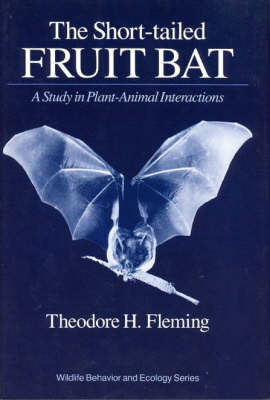Wildlife Behaviour & Ecology S.
1 total work
As dusk settles over the Costa Rican forest, the short-tailed fruit bat, "Carollia perspicillata," stirs from its cave roost. Flying out to search for ripe fruit, "Carollia" returns to a night roost in the forest vegetation to eat. After a few such flights "Carollia" rests, and the fruits pass through its short digestive tract. The seeds are excreted onto the ground, to be eaten in turn by mice and insects, but a few are pushed into crevices where they await the necessary conditions for germination.
In "The Short-tailed Fruit Bat," Theodore Fleming examines "Carollia"'s role in the ecology of tropical forests. Based on more than ten years' research, this study provides the most detailed ecological and evolutionary account to date of the life history of a Neotropical mammal and includes striking photographs of the bats in flight.
In "The Short-tailed Fruit Bat," Theodore Fleming examines "Carollia"'s role in the ecology of tropical forests. Based on more than ten years' research, this study provides the most detailed ecological and evolutionary account to date of the life history of a Neotropical mammal and includes striking photographs of the bats in flight.
